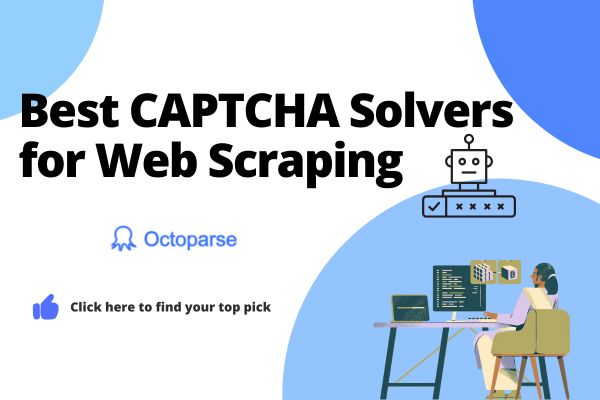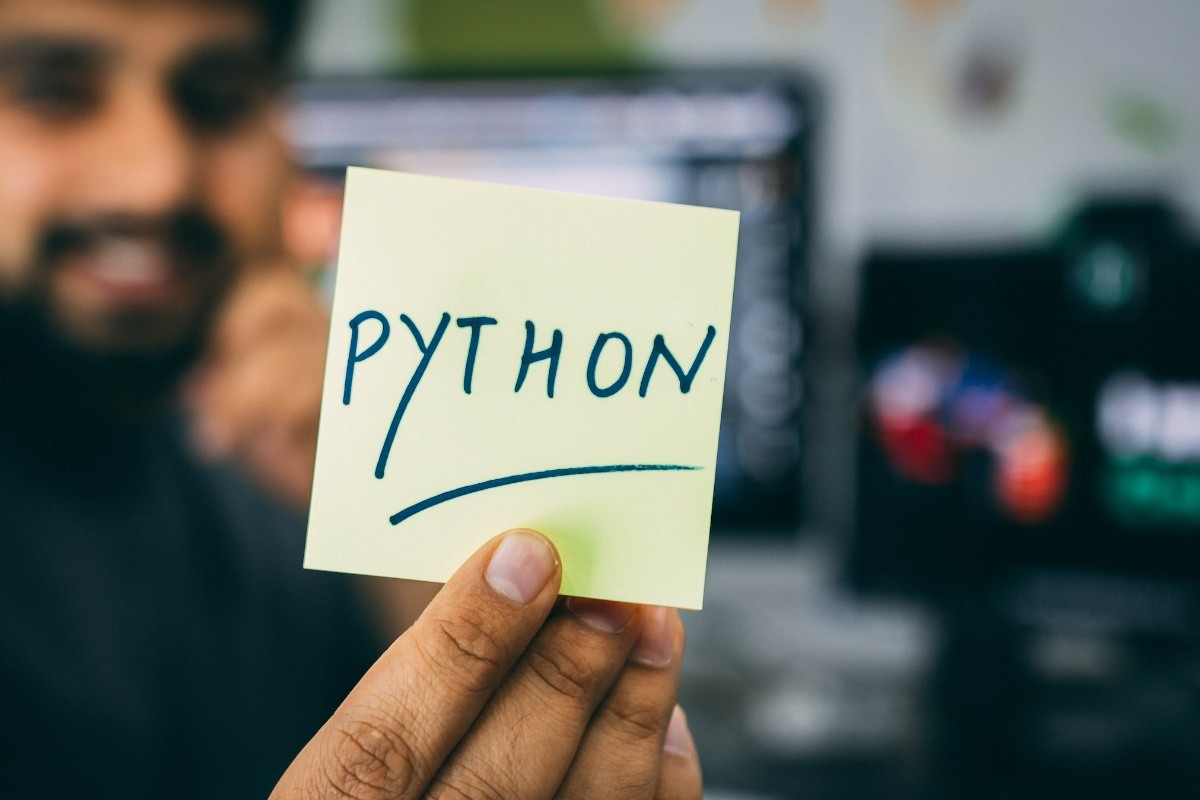Web scraping projects fail for predictable reasons. After helping thousands of users extract data at scale, we’ve identified the nine most common challenges—and the solutions that actually work.
This guide covers nine challenges you’ll encounter in 2026 and how to solve them.
TL;DR
| Challenge | What to Do |
| Dynamic content | Use headless browser, wait for elements, check for hidden APIs |
| Selectors broke | Use semantic HTML tags, avoid generated class names, monitor output |
| IP blocked | Rotate residential proxies, add delays, randomize timing |
| CAPTCHAs appear | Improve stealth first, use solving services when needed |
| Honeypot blocks | Only interact with visible elements, don’t crawl exhaustively |
| Login required | Automate authentication, preserve cookies, handle session expiry |
| Timeouts | Increase limits, add retry logic with backoff, reduce concurrency |
| Pagination issues | Match approach to pagination type, deduplicate records |
| You need fresh data | Schedule automated runs, add change detection |
General Challenges in Web Scraping
1. Dynamic Content Won’t Load
Modern websites load content dynamically through AJAX calls rather than serving complete HTML.
This breaks traditional scrapers that only read the initial page source.
Common symptoms:
- Empty data fields where content should appear
- Scraper returns page skeleton without actual data
- “Load more” buttons that don’t trigger data retrieval
Why this happens: AJAX (Asynchronous JavaScript and XML) fetches data after the initial page loads. Standard HTTP requests only capture the first response—before JavaScript executes and populates the page.
How to fix it:
Use a headless browser like Puppeteer or Playwright that executes JavaScript the same way a real browser does. The key is waiting for the right moment—don’t use arbitrary delays like “wait 5 seconds.” Instead, wait until the specific element you need actually appears in the DOM.
Before building complex browser automation, check whether the site has a hidden API. Open your browser’s DevTools, go to the Network tab, and watch what happens when the page loads. Many sites fetch their data from JSON endpoints that you can call directly, which is faster and more reliable than rendering the full page.
For infinite scroll pages, you’ll need to programmatically scroll down and wait for new content to load before continuing extraction.
How to solve it in Octoparse:
Set an AJAX timeout for dynamic elements. In your workflow, click on the action (like “Click item” or “Click to Paginate”), then configure the AJAX timeout value. This tells Octoparse to wait for content to load before proceeding.
For infinite scroll pages, add a “Scroll Page” action with loop settings. Octoparse will scroll down, wait for new content to load via AJAX, then continue extraction.
For pages requiring JavaScript execution, use “Execute JavaScript” action to trigger specific functions or interactions before scraping.
Related reading: How to Scrape AJAX and JavaScript Websites | Dynamic Web Page Guide
2. Scraping Lazy Loading Pages
Lazy loading delays image and content loading until users scroll to that section. Scrapers that don’t scroll see placeholder elements instead of actual data.
Common symptoms:
- Images return as placeholder URLs or base64 loading spinners
- Content below the fold is missing entirely
- Product listings only capture first 10-20 items
How to solve lazy loading:
Build your selectors to survive changes. Instead of targeting exact class names like .product-card-v2, target semantic HTML elements like <article> or <h1> that rarely change. Use relative XPath expressions based on element relationships rather than absolute paths from the document root.
Avoid auto-generated class names like .css-x7d93k or .sc-bdVaJa—these are created by CSS-in-JS frameworks and change on every deployment.
Set up monitoring for your scrapers. Track the number of records extracted each run and alert yourself when counts drop unexpectedly. Catching a break on day one is much easier than discovering weeks of missing data later.
Why Octoparse Can Handle This?
Configure scroll actions before extraction. In Octoparse:
- Add a “Scroll Page” action before your data extraction step
- Set scroll type to “Scroll to page bottom” or specify pixel distance
- Add wait time after scrolling (2-3 seconds) for content to render
- For long pages, loop the scroll action until all content loads
For image-heavy pages, verify you’re extracting the final src attribute, not data-src or lazy-load placeholders.
Related reading: How to Scrape Web Pages with Load More Button
3. Website Structure Changes Breaking Scrapers
Websites update their HTML (Hypertext Markup Language) structure regularly. Class names change, elements move, new wrappers appear. Each change can break existing scrapers.
Common symptoms:
- Scraper that worked yesterday returns errors today
- Data fields suddenly empty or contain wrong content
- XPath selectors no longer match target elements
Why this happens: Web developers continuously update sites for better UX, faster loading, or security improvements. Even minor CSS class changes break scrapers built on specific selectors.
How to solve it:
Build resilient selectors from the start:
- Use relative XPath based on element relationships, not absolute paths
- Target semantic HTML elements (
<article>,<h1>,<price>) over generic divs with class names - Select by text content patterns when structure is unpredictable
In Octoparse, modify existing tasks without rebuilding:
- Open your task in edit mode
- Click on the broken field
- Re-select the element on the current page layout
- Octoparse updates the XPath automatically
Set up monitoring: Run tasks on a schedule and track output. Sudden drops in extracted records signal structure changes.
Octoparse provides several cloud servers for Cloud Extraction to cope with IP blocking. When your task runs with Cloud Extraction, you can take advantage of multiple using Octoparse’s IPs. Then you can avoid using only one IP to request too many times but keep the high speed.
Related reading: How to Maintain Data Quality While Web Scraping
4. You’re Getting Blocked
You start seeing 403 Forbidden errors, CAPTCHA challenges on every page, or redirects to blank pages. Your scraper was working fine, and now it can’t access anything.
What’s happening: The website detected automated access and blocked your IP address or flagged your browser fingerprint. Anti-bot services like Cloudflare share reputation data across millions of sites, so getting flagged on one site can affect your access elsewhere.
Common symptoms:
- 403 Forbidden errors
- CAPTCHA challenges on every request
- Redirects to block pages
- Slower response times before complete blocking
Why this happens: High request volume from single IP addresses triggers anti-bot systems. Datacenter IPs are often pre-flagged. Missing or inconsistent headers reveal automation.
How to fix it:
Rotate your IP addresses using residential proxies. Datacenter IPs are often pre-flagged in bot detection databases, but residential IPs from real ISPs have much better reputations. Rotate to a new IP every few requests or when you encounter blocks.
Slow down your request rate. Add 2-5 seconds of random delay between page loads. Machines make requests at unnaturally consistent intervals—adding randomness to your timing helps you blend in with human traffic patterns.
Make sure your HTTP headers look like a real browser. Set a legitimate User-Agent string, include standard headers like Accept-Language and Accept-Encoding, and keep them consistent throughout your session.
This won’t trouble you if you use Octoparse:
Use Octoparse Cloud Extraction: Tasks run on Octoparse’s distributed cloud servers with automatic IP rotation. This spreads requests across multiple addresses and locations.
For sensitive targets, configure proxy settings:
- Go to Settings > Proxy Settings
- Add your proxy server details (residential proxies work best)
- Enable proxy rotation for the task
Reduce request frequency: Add wait times between page loads. 2-5 seconds between requests mimics human browsing patterns.
Related reading: How Do Proxies Prevent IP Bans in Web Scraping | How to Set up a Proxy in Octoparse
5. CAPTCHA Interruptions
CAPTCHAs verify human users by presenting challenges that automated systems struggle to solve.
CAPTCHA, short for Completely Automated Public Turing Test to Tell Computers and Human Apart, is often used to separate humans from scraping tools by displaying images or logical problems that humans find easy to solve but scrapers don’t.
Common symptoms:
- Image selection challenges appear during scraping
- reCAPTCHA blocks prevent page access
- Extraction stops mid-task requiring manual intervention
Types of CAPTCHAs:
- Image CAPTCHAs: Select traffic lights, crosswalks, etc.
- reCAPTCHA v2: Checkbox with risk-based challenges
- reCAPTCHA v3: Invisible scoring based on behavior
- hCaptcha: Similar to reCAPTCHA with privacy focus
How to solve it:
Focus on prevention first. Using residential proxies, maintaining realistic timing, and properly mimicking browser behavior will dramatically reduce how often CAPTCHAs appear. Sites serve CAPTCHAs when something seems off—if nothing seems off, you won’t see them.
When CAPTCHAs are unavoidable, use a solving service like 2Captcha or CapSolver. These route challenges to human workers or AI solvers and return the answer. Factor the per-solve cost into your project budget, as it adds up at scale.
For invisible CAPTCHAs like reCAPTCHA v3, there’s no puzzle to solve. The system scores your behavior and either lets you through or blocks you. The only solution is to not trigger suspicion in the first place.
Does Octoparse have a CAPTCHA solver?
Octoparse handles reCAPTCHA v2 and Image CAPTCHAs automatically during cloud extraction. The system detects challenges and solves them without manual input.
To reduce CAPTCHA frequency:
- Enable cloud extraction (distributed IPs trigger fewer challenges)
- Add realistic delays between actions
- Avoid aggressive parallel task execution on same domain
For sites with persistent CAPTCHA issues, extract during off-peak hours when security systems may be less aggressive.
Related reading: How to Bypass CAPTCHA While Web Scraping | How to Bypass Cloudflare CAPTCHA
6. You’re Hitting Honeypot Traps
Your scraper gets blocked suddenly without any obvious cause. No CAPTCHA, no error message—just cut off.
What is honeypot trap?
A honeypot is a trap the website owner puts on the page to catch web scrapers. The traps can be elements or links that are invisible to humans but visible to scrapers. If a scraper accesses such elements and falls into the trap, the website can block that scraper using the IP address it receives.
What’s happening: Some websites embed invisible elements specifically designed to catch bots. These might be links with display:none styling or form fields hidden off-screen. Human users never interact with them because they can’t see them, but scrapers that blindly process every element on the page will trigger them and get flagged.
How to fix it:
Only interact with elements that are actually visible on the page. Before clicking a link or filling a field, verify that it has real dimensions and isn’t hidden by CSS. Most scraping frameworks provide ways to check element visibility.
Don’t automatically follow every link on a page. Be intentional about your navigation—target the specific content paths you need rather than crawling exhaustively. This naturally avoids most traps designed to catch broad crawlers.
If you’re getting blocked without explanation, inspect the page source and look for suspicious hidden elements. Links to URLs like /trap or form fields with names like email2 or url that aren’t visible are red flags.
Octoparse uses XPath to precisely locate items for clicking or scraping. With the help of XPath, the scraper can distinguish the wanted data fields from honeypot traps and reduce the chance of catching by the traps.
7. Pages Timeout or Load Partially
Websites may respond slowly or even fail to load when receiving too many access requests. Some pages return incomplete data—a few fields populated, others empty. Other pages fail entirely with timeout errors.
This is not a problem when humans browse the site as they just need to reload the page and wait for it to recover. But things change when it comes to web scraping. The scraping process may be broken up as the scraper does not know how to deal with such an emergency. So that users may need to give the scraper an instruction to retry manually.
How to fix it:
Increase your timeout thresholds to match the reality of the sites you’re scraping. If pages regularly take 15 seconds to load, a 10-second timeout will fail constantly. Measure actual load times and set your limits with comfortable margin.
Add retry logic for failed requests. Many failures are transient—a momentary server hiccup or network blip. Retrying after a short delay often succeeds. Use exponential backoff to avoid hammering a struggling server: wait 2 seconds before the first retry, 4 seconds before the second, and so on.
If you’re running many requests in parallel, try reducing concurrency. You might be overwhelming the target server, causing it to slow down or reject connections.
Or, you can choose to add an extra action while building a scraper. Octoparse now allows users to set up an auto-retry or retry loading when certain conditions are met to resolve the issue. You can even execute customized workflows under preset situations.
8. Login Requirements
Valuable data often sits behind authentication walls.
When you browse a website, some protected information may require you to log in first. Once you submit your login credentials, your browser will automatically append the cookie value to multiple requests you make your way to most sites, so the websites know you’re the same person who just logged in earlier.
Scrapers need to maintain logged-in sessions across multiple page requests.
Common symptoms:
- Redirected to login page instead of target content
- Session expires mid-extraction
- Different content visible when logged in vs. logged out
How to solve it in Octoparse:
Build login into your workflow:
- Start task on the login page
- Add “Input Text” actions for username and password fields
- Add “Click” action on the login button
- Add wait time for authentication to complete
- Continue with your normal extraction steps
Octoparse can simply help users scrape website data behind a login, and save the cookies, just like a browser does. Once logged in, subsequent page navigations stay authenticated.
For sites with session timeouts, schedule tasks to run within the session validity window, or add re-authentication logic for longer extractions.
Legal note: The hiQ Labs v. LinkedIn case established that scraping publicly available data does not violate the Computer Fraud and Abuse Act. However, the court also found that hiQ breached LinkedIn’s User Agreement by creating fake accounts for scraping. Always review site terms of service before scraping authenticated content.
Related: Is Web Scraping Legal? It Depends | GDPR Compliance in Web Scraping
9. Real-time Data Scraping
Scraping data in real-time is essential for price comparisons, competitor monitoring, inventory tracking, etc. The data can change in the blink of an eye and may lead to huge capital gains for a business. The scraper needs to monitor the websites all the time and extract the latest data. However, it is hard to avoid some delays as the request and data delivery will take time, not to mention acquiring a large amount of data in real-time is a time-consuming and heavy workload task for most web scrapers.
Octoparse has cloud servers that allow users to schedule their web scraping tasks at a minimum interval of 5 minutes to achieve nearly real-time scraping. After setting a scheduled extraction, Octoparse will launch the task autocratically to collect the up-to-date information instead of requiring users to click the Start button again and again, which will surely contribute to the working efficiency.
Web Scraping Limitations You Should Know
Beyond the challenges above, web scraping tools have inherent limitations:
1. Can’t extract text from PDFs or images directly. Scrapers pull data from HTML. For PDFs, you need OCR or PDF parsing tools. For images, you get URLs—not the image content itself.
2. Learning curve exists. No-code tools like Octoparse reduce complexity, but understanding selectors, pagination, and workflow logic still takes time. Start with Octoparse templates for common sites to learn patterns.
3. Not free at scale. Small projects work on free tiers. Large-scale extraction requires cloud resources, proxies, and CAPTCHA solving—budget accordingly.
4. You get HTML, not files. Scrapers extract what’s in the page markup. For images, you’ll get URLs that you can then download separately. For PDFs or other embedded documents, you’ll need additional tools to extract their contents.
5. Data quality depends on the source. Whatever inconsistencies, typos, or formatting issues exist on the website will flow into your extracted data. Always validate and clean your output—don’t assume it’s ready to use.
6. Maintenance is ongoing. Websites change, anti-bot systems evolve, and scrapers break. A scraper is never truly “finished.” Plan for ongoing maintenance time from the start of any project.
Troubleshooting Common Octoparse Issues
Task runs but returns no data:
- Check if page structure changed (re-select elements in edit mode)
- Verify AJAX timeout is sufficient for dynamic content
- Test extraction in local run before cloud deployment
Task fails partway through:
- Increase page load timeout for slow sites
- Enable auto-retry in cloud settings
- Check if IP blocking occurred (switch to cloud extraction)
Scheduled task didn’t run:
- Verify cloud extraction is enabled (not local)
- Check schedule configuration and timezone settings
- Confirm account has available cloud extraction credits
Data has missing fields:
- Element selector may be too specific—use broader XPath
- Content may load after initial page render—add wait actions
- Some pages may have different layouts—build conditional extraction
Conclusion
Besides the challenges we mentioned in this post, there are certainly more challenges and limitations in web scraping. But there is a universal principle for scraping: treat the websites nicely and do not try to overload them. If you are looking for a more smooth and efficient web scraping experience, you can always find a web scraping tool or service to help you handle the scraping job. Try Octoparse now, and bring your web scraping to the next level!
Need help with a specific scraping challenge? Start with Octoparse templates for common websites, or contact our data service team for custom extraction projects.
New to web scraping? Read What Is Web Scraping and How to Use It for fundamentals.




